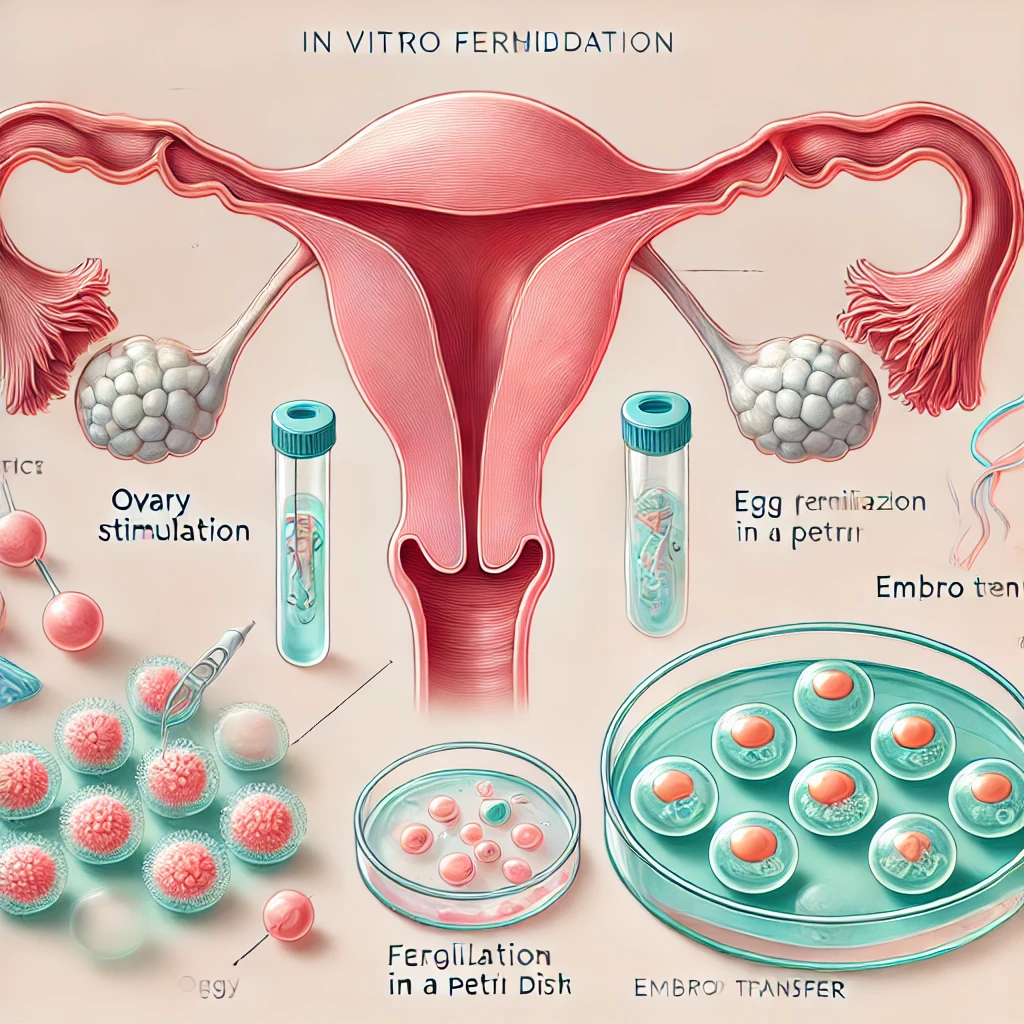IVF Injections
ToggleIVF Injections: A Comprehensive Guide
In vitro fertilization (IVF) is a widely used fertility treatment that has helped millions of couples achieve their dream of parenthood. A crucial aspect of the IVF process involves the use of fertility medications administered through injections. These IVF injections play a vital role in stimulating the ovaries, regulating hormones, and preparing the body for the egg retrieval and embryo transfer stages. We believe in the power of knowledge at Best Life Fertility Center, that’s why in this article we will provide you with an in-depth look at IVF injections, including the types of injections, how they work, and what patients can expect during this part of their IVF journey.

What Are IVF Injections?
IVF injections are fertility medications administered via subcutaneous (under the skin) or intramuscular (into the muscle) injections. These medications are designed to stimulate the ovaries to produce multiple eggs, regulate the timing of ovulation, and support the implantation process. The use of injections in IVF is essential for maximizing the chances of a successful pregnancy.
Types of IVF Injections
There are several types of IVF injections, each serving a specific purpose within the treatment protocol. The main categories of IVF injections include:
1. Ovarian Stimulation Injections
Ovarian stimulation injections are the first set of medications used in the IVF process. These injections contain hormones that stimulate the ovaries to produce multiple eggs in a single cycle. The primary hormones used for ovarian stimulation include:
- Follicle-Stimulating Hormone (FSH): FSH injections stimulate the growth and development of follicles in the ovaries. Follicles are small sacs that contain the eggs.
- Luteinizing Hormone (LH): LH injections work in conjunction with FSH to promote the maturation of the eggs.
- Some medications might contain a combination of FSH and LH.
These injections are typically administered daily for about 10-14 days, depending on the patients response to the medication. The dosage and duration are closely monitored by the fertility specialist through blood tests and ultrasounds.
At Best Life Fertility Center, our experienced doctors always maintain a highly accurate monitoring of the stimulation process, to ensure the best possible outcomes of the treatment.
2. Ovulation Trigger Injections
Once the ovarian follicles have matured, an ovulation trigger injection is administered to induce the final maturation of the eggs and prepare them for retrieval. The most commonly used ovulation trigger injection is human chorionic gonadotropin (hCG), which mimics the natural LH surge that triggers ovulation.
This injection is typically administered 34-36 hours before the scheduled egg retrieval to ensure the eggs are mature and ready for collection.
3. GnRH Agonists and Antagonists
To prevent premature ovulation during the ovarian stimulation phase, GnRH (Gonadotropin-Releasing Hormone) agonists or antagonists may be used. These medications help control the timing of ovulation and ensure that the eggs are retrieved at the optimal time.
- GnRH Agonists: These medications suppress the body’s natural hormone production to prevent premature ovulation. They are usually started a few days before the ovarian stimulation injections and continued until the trigger injection.
- GnRH Antagonists: These medications work similarly to GnRH agonists but are typically started later in the stimulation cycle. They provide a more immediate suppression of hormone production to prevent premature ovulation.
4. Progesterone Injections
Progesterone injections are administered to support the uterine lining and promote a favorable environment for embryo implantation. Progesterone is a hormone that prepares the endometrium (lining of the uterus) for implantation and supports early pregnancy.
- Progesterone In Oil (PIO):Progesterone in oil is an intramuscular injection that is commonly used in IVF cycles. It is typically administered daily after the egg retrieval and continued until a positive pregnancy test and sometimes throughout the first trimester.
Common Side Effects of IVF Injections
While IVF injections are generally well-tolerated, some patients may experience side effects. These side effects are usually mild and temporary, but it’s essential to be aware of them:
- Injection Site Reactions: Redness, swelling, or bruising at the injection site is possible. Applying a cold compress after the injection can help reduce discomfort.
- Bloating and Abdominal Discomfort: The ovarian stimulation injections can cause the ovaries to enlarge, leading to bloating and discomfort in the lower abdomen.
- Mood Swings: The hormonal changes caused by IVF injections can lead to mood swings, irritability, or emotional sensitivity.
- Fatigue: Some patients may feel tired or fatigued during the IVF injection phase.
- Breast Tenderness: Hormonal fluctuations can cause breast tenderness or swelling.
If side effects become severe or persistent, it’s important to contact your fertility specialist for guidance.
Tips for Managing IVF Injections
Here are some tips to help manage the IVF injection process and make it as smooth as possible:
- Create a Schedule: Keep a detailed schedule of your injection times and doses. Setting reminders on your phone can help ensure you don’t miss any injections.
- Practice Self-Care: IVF can be physically and emotionally taxing. Take time for self-care, whether it’s through relaxation techniques, gentle exercise, or seeking support from loved ones.
- Ask for Help: Ask a specialist to assist you. Your fertility clinic can also provide guidance and support.
- Communicate with Your Doctor: Keep an open line of communication with your fertility specialist. Report any concerns or side effects you experience during the injection phase.
Conclusion
IVF injections are a crucial component of the IVF treatment process, playing a vital role in stimulating the ovaries, regulating hormones, and preparing the body for egg retrieval and embryo transfer. While the idea of administering injections may seem intimidating, with the right support and guidance, most patients find the process manageable.
At Best Life Fertility Center, we will help you understand the different types of IVF injections, how they work, and what to expect to help alleviate some of the stress associated with the treatment.
By following one of our fertility specialist’s instructions at Best Life Fertility Center, and taking steps to manage side effects, you can navigate the IVF injection phase with confidence, bringing you one step closer to achieving your dream of parenthood.

